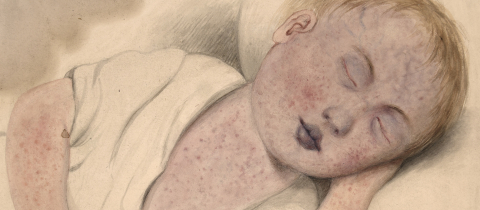The name for ‘pineapple’ is a misnomer. The fruit, also known as Ananas comosus, belongs to neither the pine nor apple genus (Pinus and Malus, respectively). In the Middle Ages, the word ‘apple’ was used to refer to any unknown species that grew on a tree and bore any resemblance to the apples we are familiar with today. In fact, ‘pineapple’ used to signify a pinecone. The word then evolved into a descriptor for sweet tropical fruits, and there’s nothing quite like biting into a juicy and refreshing chunk of pineapple. But just when you start to go in for more, that feeling of satisfaction is replaced by one of irritation. Why is it that the tropical taste gets overpowered by an itchy or tingling sensation?
What causes this unexpected experience? Sure, you could just be allergic, but the reaction is quite universal. While there is no single, clear explanation, there are many potential contributing factors.
Pineapples have pesky structures called “raphides” that are needles of insoluble crystals made of calcium oxalate that can be found in many plant tissues. There are various theories about the role of raphides, notably calcium regulation and detoxification. But there is a special focus on their possible role in herbivore defence – a way for plants to fight back against predators without being able to run, hide, or swat. If the plant is damaged, sap or saliva will trigger the expulsion of these needles, which can then prick the lining of the predator’s oral cavity and cause irritation.
Another possible explanation is that pineapples contain bromelain, a mixture of proteolytic enzymes, meaning they break down proteins. Pineapple is also an acidic fruit. These two factors alone are benign, but it is hypothesized that their tag-team effects could be to blame for the irritation. Bromelain has mucolytic effects, hence it can break down some of the mucous in our saliva that protects the lining of the oral cavity. With this weakened defence line, the acidic pH of pineapple juice can cause an unpleasant prickle.
There is also a possibility that a combination of these factors is to blame for the sensation. A 2014 study at the National Institute of Agrobiological Sciences in Japan fed herbivorous Eri silkmoth larvae with leaves painted with raphides from a kiwifruit and leaves painted with bromelain. A synergistic effect between the two was found, meaning the larvae showed less growth and greater mortality when fed with both raphides and bromelain. The study also found that this synergism required the raphides to be in their needle shapes, suggesting that the structures may puncture oral linings to allow other factors to access targets more easily.
Counterintuitively, bromelain has been purported to have a plethora of health benefits, ranging from treatment of bronchitis and sinusitis to inflammation. The evidence, though, is scant and comes from the use of supplements, not from eating fresh pineapples. Like any fruit, pineapples contain a variety of vitamins, minerals and antioxidants, so by all means, eat them, if you can get by the assault on your oral tissues. Don’t try to make Jell-o with fresh pineapples though! Bromelain and gelatin are not friends. Gelatin is a protein, and recall, bromelain destroys proteins. Canned pineapples are fine, the heat treatment the fruit undergoes destroys enzymes.
Haleh Cohn is studying Anatomy and Cell Biology at McGill University.







